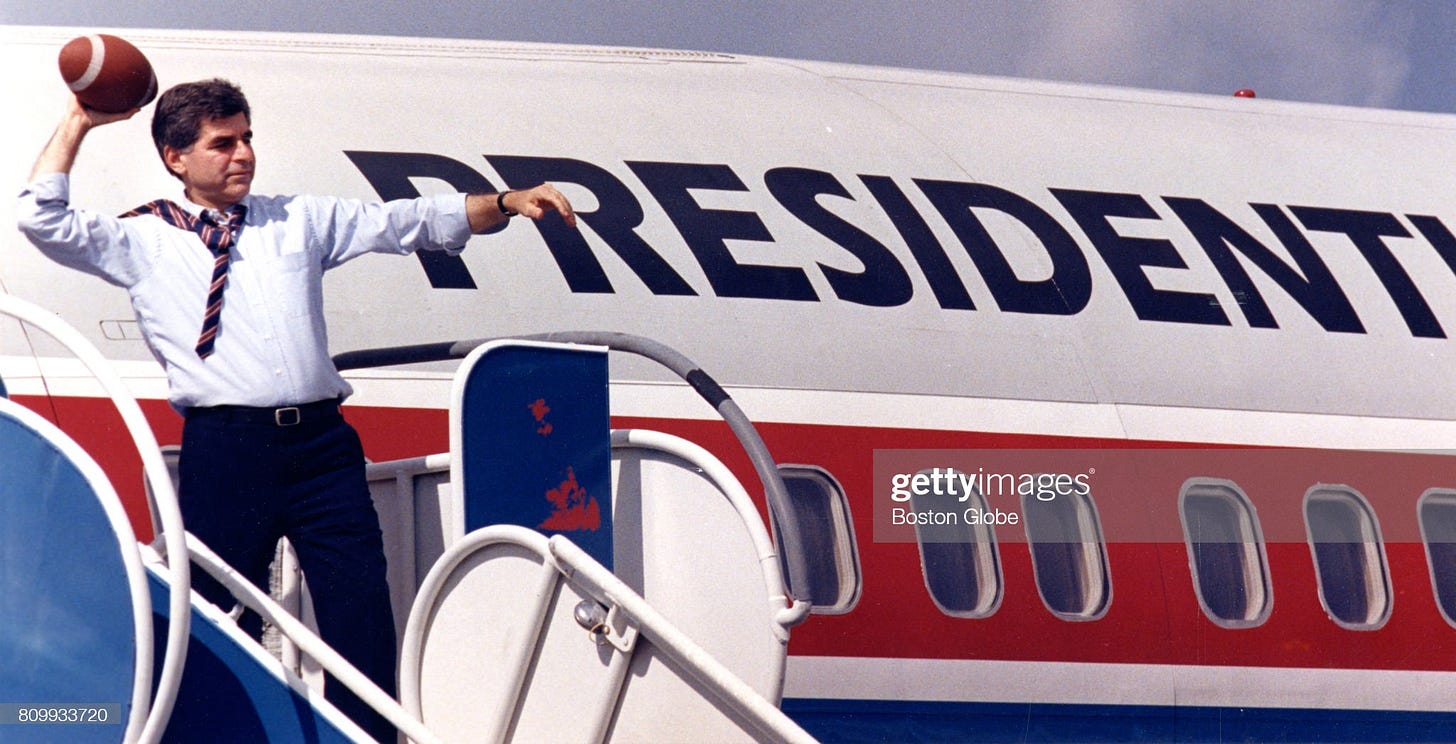The Imperial Id Contests the BMOC Title
During the Iraq War, the Washington Post correspondent Rajiv Chandrasekaran wrote a sharply observed book about the Green Zone, depicting it as a sealed-off fantasy realm. Cronies and bros flew in to run a country they never saw, swapping business cards by the swimming pool and producing an endless stream of PowerPoint presentations about what a good job they were doing. “The Halliburton-run sports bar at the al-Rasheed Hotel needed a Foosball table.” Young political climbers and party operatives, holed up in a heavily guarded gated city within a city, rewrote Iraq’s laws and reformed the country’s local governments by decree and from a distance. A recent college graduate with no experience in finance was in charge of the Iraqi stock market. Sitting inside a country but isolated and disconnected from it, they “ran” a place they didn’t understand and hadn’t really been to.
So.


The development of a completely isolated governing class, sealed inside its Green Zone with itself, running a country it doesn’t know, is a development with deep roots and a long history of cultural training. Angelo Codevilla:
Today’s ruling class, from Boston to San Diego, was formed by an educational system that exposed them to the same ideas and gave them remarkably uniform guidance, as well as tastes and habits. These amount to a social canon of judgments about good and evil, complete with secular sacred history, sins (against minorities and the environment), and saints. Using the right words and avoiding the wrong ones when referring to such matters — speaking the “in” language — serves as a badge of identity. Regardless of what business or profession they are in, their road up included government channels and government money because, as government has grown, its boundary with the rest of American life has become indistinct. Many began their careers in government and leveraged their way into the private sector. Some, e.g., Secretary of the Treasury Timothy Geithner, never held a non-government job. Hence whether formally in government, out of it, or halfway, America’s ruling class speaks the language and has the tastes, habits, and tools of bureaucrats. It rules uneasily over the majority of Americans not oriented to government.
But the disaster of the governing class, of its metastasizing habit of self-reference, has become completely unsustainable. They play themselves on TV, and have no apparent substance beyond the roleplay. Joan Didion wrote about these people several decades ago, in an essay that’s now mostly paywalled: “Insider Baseball.”1 She depicted a world of performance, of messaging for the sake of messaging, candidates who got the memo from staff that they needed to display passion or strength and so went out in front of the cameras and depicted the designated characteristics. As the news media portrayed Michael Dukakis as a passionless weakling, Didion wrote, the candidate became athletic for the cameras, dragging out a campaign staffer to toss around a baseball (in Phoenix) or a football (in Albuquerque) in hundred-degree weather on a tarmac; then the political press wrote about how tough Dukakis had looked lately.
Didion concludes:
What we had in the tarmac arrival with ball tossing then, was an understanding: a repeated moment witnessed by many people, all of whom believed it to be a setup and yet most of whom believed that only an outsider, someone too “naive” to know the rules of the game, would so describe it.
Donald Trump is not our kind, dear: He’s not a member of the class, and so is understood to be vulgar and inappropriate. His references are wrong; he doesn’t have the tastes, habits, and tools of bureaucrats. But he acts like he belongs!
Immersed in a lifetime of what the historian Daniel Boorstin called “pseudo-events,” trained in a “social canon of judgments about good and evil” that they’ve learned to express in uniform and essentially ritual language, the governing class portrays a series of increasingly nonsensical judgments without reference or connection to external realities.
But only an outsider, someone too “naive” to know the rules of the game, would so describe it.
“It occurred to me, in California in June and in Atlanta in July and in New Orleans in August, in the course of watching first the California primary and then the Democratic and Republican national conventions, that it had not been by accident that the people with whom I had preferred to spend time in high school had, on the whole, hung out in gas stations.”


My sense of it is that a super majority of Americans are fed up with the self-appointed "ruling class." Everyone, including a fast growing subset of those who were formerly their most stalwart supporters, is abandoning them. They should have died a well-deserved death in 2020. But so long as we let the arrogant class cheat at the polls, their stupidity will continue to reign.
The rise of this essentially performative type of politics seems to be largely a function of television. During the print era, politicians tended to be skilled orators and writers; a more intellectual type of statesman was selected for.
Trump was the first social media president. His entire campaign was a trolling operation conducted for the lulz, and it blew these prefabricated, focus-grouped, message-controlled corporate PR specialists out of the water. To a large degree, that's why they're terrified by him. His every tweet made them feel the chill of the grave.